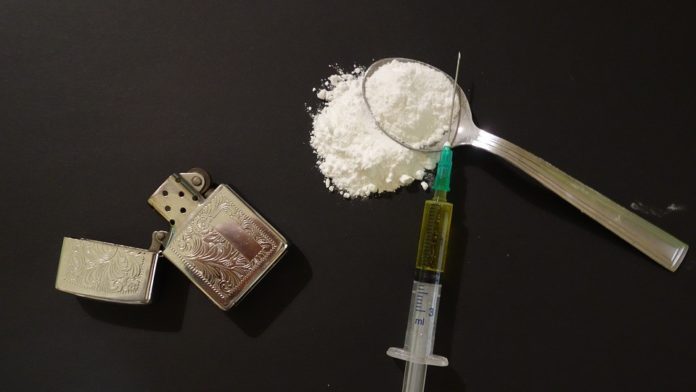It’s common knowledge that sharing needles is a risk factor for the transmission of many infections, including HIV and hepatitis. That’s why needle exchange programs that provide sterile needles to drug users are important to harm reduction and public health.
Yet in London, Ontario, a city with one of the highest rates of opioid substitution therapy and sterile needle distribution nationwide, an outbreak of HIV took place in the summer of 2016. Researchers were initially baffled by the outbreak, and suspicion soon turned to an as-yet unknown method of transmission that must be happening somewhere along the process of drug consumption.
Now, a team of investigators from Western University and the Lawson Health Research Institute have confirmed that HIV can spread by sharing the equipment used to prepare drugs, but the threat can be eliminated by heating the equipment with a lighter until the mixture reaches boiling point — a simple process that only takes around 10 seconds.
Needles not shared, but users drawing from the same pool
Between August 2016 and June 2017, the team interviewed 127 drug users to understand the process of how they use drugs and see what relationship this behaviour has with HIV transmission. One of the most commonly abused drugs in the London area is a type of opioid called hydromorphone (also known as hydromorph contin), and most of the interviewees said that they shared ‘cookers’ (used to dissolve the drug) and filters.
The vast majority were also found to reuse and perform multiple ‘washes’ with this substance (a ‘wash’ is the mixture that remains after the drug dissolves in the cooker). Using a filter, the wash is then extracted into the syringe, ready for injection. The team’s tests found that 45% of the drug remains on average after the first wash, adding weight to the idea that communal usage is common.
“Controlled-release hydromorphone is expensive and difficult to dissolve,” says Sharon Koivu from the Lawson Health Research Institute. “After the first wash, large amounts of the drug remain in the equipment which is then saved, shared or sold for future use.
“While people know not to share needles, some use their own needle multiple times, allowing for contamination of the equipment.”
In the lab, researchers were able to confirm that HIV transmission can happen with needles, cookers, and filters, but there was another factor at play: hydromorphone itself can help the HIV virus to survive.
“The slow release properties in the drug can, unfortunately, stabilize the HIV virus,” says co-author Eric Arts. “For the first time, we were able to demonstrate that sharing equipment could lead to the type of HIV outbreak we observed in the community.”
Results showed that drug users who shared equipment were 22 times more likely to contract HIV, even if no needle sharing was involved.
‘Cook Your Wash’ campaign showing promise
There is good news, however, as the proposed solution is a double-win. ‘Cook Your Wash’ — a slogan that now fronts a public health campaign — entails heating the cooker for 10 seconds with a lighter until the wash bubbles. At this temperature, the HIV virus is killed off.
Not only that, but cooking the wash does not affect the concentration of the drug, meaning that users will not unintentionally overdose or be put off applying this safety measure due to a weakened wash. A Western University press release stated that, although it’s not the sole reason, “local rates of new HIV cases fell dramatically after the introduction of the campaign.”
“The ‘Cook Your Wash’ campaign is one of the most exciting things to happen in our community,” says Koivu. “We learned from persons who inject drugs, took that information to the lab to develop a solution and then brought that solution back to the community in record time.”








































